|
|
||
|
Pro Tools
FILMFESTIVALS | 24/7 world wide coverageWelcome ! Enjoy the best of both worlds: Film & Festival News, exploring the best of the film festivals community. Launched in 1995, relentlessly connecting films to festivals, documenting and promoting festivals worldwide. Working on an upgrade soon. For collaboration, editorial contributions, or publicity, please send us an email here. User login |
DRIVE-ing at Cannes, with Ryan GoslingThis was a very endearing press conference, especially in light of Lars Von Trier’s press conference two days prior for MELANCHOLY (2011) that still had everyone’s head spinning in Cannes. Von Trier’s comments on his Nazi sympathies as well as his protested desire to return to Denmark and focus only on soft and hardcore porn had everyone at Cannes thinking twice about Danish cinema and its praiseworthy art-house directors. Nicolas Winding Refn is a former student of Von Trier so naturally, there was a thick tension in the DRIVE pressroom with everyone wondering what would or wouldn’t be said. But one question that most press strayed from but which one curious journalist finally asked was the reference to Nic’s former teacher Von Trier and his infamous speech. What was Nic’s response? And how did he compose himself and represent the latest generation of Danish filmmakers to the hungry Cannes media? Below is the press conference for the film in competition DRIVE (2011) at this year’s Cannes Film Festival. On panel were: Director Nicolas Winding Refn, Actor Ryan Gosling, Writer Hossein Amini, Editor Mat Newman, Producer Marc Platt and Producer Adam Siegel. QUESTION: To Nicolas…With DRIVE you are back to a certain theme of American cinema…Can we say you are nostalgic about this period? NICOLAS: Well, in a way, I was born in the 70s. I grew up in the cinema of the 70s but 80s was more my thing. It was interesting while making this film was that I wanted to live the mythology of what it was like for a European to come to LA to make a movie and usually those were the times you would just hear the horror stories of what goes wrong. And I can see where it goes wrong a lot of times, but on this time it was the fucking best! And I was in Hollywood, which is the heart of the mythology, where all the Europeans came later on in the 70s when they were making European films in Hollywood by Americans and the marriage between Europe and Hollywood has always been the best when it worked. And so being there and in a house with a swimming pool and an orange tree and I lived in the hills and it was that whole mythology of being in LA and making films and even though I came to LA with the idea of making this film I was living with the idea of being attacked and wondering ‘when are they going to do something to take away my dignity or my creativity or all things that you hear that they do, which they do a lot, but here I realized that people actually helped me. And I was working with a brilliant scriptwriter, Haas, and Mark and Adam and they were here, like, ‘we’re here to help you’, and I was like, ‘What do you mean?’ And they were like, ‘how can we help you?’ And I said, ‘What do you mean?’ And they said, ‘Seriously, What can we do for you?’ And I was kind of suspicious, you know…Americans! …In the end, I was allowed to make the film I wanted to make and I had the best Hollywood experience anyone could have. QUESTION: Film seems to marry the European art-house cinema with a violent visceral adrenaline rush of American traditional in action pictures in US. So, here your character doesn’t say much more in this film than Mads Mikkelsen does in VALHALLA RISING (2009). Same level of violence on a certain level, kind of a different era, and I’m curious for you as an actor how do you see that vision of putting those two types of cinema together to create a kind of visceral rush? RYAN: Well, you know, like Nick, I can’t believe they let us do it. This whole project was kind of like a genre. I mean, a year earlier Mark had said to me ‘I’m never going to send you a script that you don’t want to do’. When I send you something I’m going to make sure you want to do it. And when he sent me DRIVE he was right. He gave me this opportunity which I’ve never had before and he said, ‘if you could have any director make this film, who would it be?’ And then he told me that the writer wanted to do it. And it was just clear to me because Nick is such a great director and one of my favorite filmmakers and this is such a raw explored genre that I just knew that Nick would be perfect for this. I tried to get a meeting with him but he was really busy trying to kill Harrison Ford in a movie because he really wanted to kill Harrison Ford. And it almost happened and when I asked to have a meeting with him. And we met and not two hours he seemed very bored and disinterested and unimpressed and eventually it was like a date that was going very wrong. And I thought, ‘this is awful’ and I thought all about myself and how terrible I am and it was just terrible. Then it turns out Nick was on a ton of American medication and he would just look at me weird once in a while. Anyhow, basically, that night I didn’t get any action so I just called it a night. But when he got the car and said he’d drive me home. Then Mario Speedwagon’s song, ‘I CANT FIGHT THIS FEELING’ came on the care radio and from the corner of my eye I saw him crying, and then I looked over and he started singing at the top of his lungs, ‘I CANT FIGHT THIS FEELING ANYMORE. IT’S TIME TO THROW THIS SHIP INTO THE SHORE, SO THROW ME THE OARS, BECAUSE I CANT FIGHT THIS FEELING ANYMORE.’ That was all he said all night. Then he said, ‘This is the movie. This is what the movie is about, a man who drives around Los Angeles listening to pop music. So, we tried to tell Mark that it was alright with him. And then we also thought the Driver shouldn’t talk. And the script was beautifully written and it’s just poetry and really authentic. But it was a kind of script so authentic on paper but hard to capture its authenticity so we had to somehow find a way to narrate this fever dream that Nick had listening to Mario Speedwagon in the process of making the script onto film. Mark and Adam gave us the freedom to go on that journey and find out what that is and that’s the film… And I’m pretty sure I didn’t answer your question. QUESTION: What can you say about the aspect of violence that is so intense? RYAN: When I saw VALHALLA RISING, it was really the only time I had an experience like this with a movie when Mads Mikkelsen’s character pulls the other character’s intestines out and everybody in the theater just started lashing and they were hitting each other and turning around and the whole theater came to wreck and suddenly it was fun to go to the movies. It was allowed to be poetry and also allowed to be funny. It could be funny and didn’t have to be serious all the time. I think to me that’s what’s interesting the way Nick handles violence…It’s nice to treat violence in a cartoonish way where it’s gross and funny because it makes it more fun somehow. That’s the way Nick deals with violence. What do you think about that, Nick? NICOLAS: I think that art is an act of violence and some years ago I started reading GRIMMS FAIRYTALES for my eldest daughter. And while I was reading them I thought it would be interesting to make a movie just like a fairytale. And how fairytales are told and used in these few art topics in them. When I met Ryan there was this script that they told me they wanted to talk about and I was in this hotel room and I was so high. And in America these drugs that they give you are like morphine and that script was kind of hazy and there was something about a car and based on a book but the dialogue was very good, especially Ryan’s dialogue. And so I met Ryan and was very much like a blind date between two heterosexual men who needed to fuck. That’s what you do, well for me at least. You have to build up a relationship with the actor and everybody else and it is quite a sexual experience and so when I asked for Ryan to take me home I felt like the girl who wasn’t going to put out. And we were sitting in the car and it was kind of surreal and like Ryan said this song came on and I was high, feeling very emotional. And I thought, ‘this is it. Everything just feels right about doing this. Then Ryan and I had our mental fuck it was then like, ‘okay, this is the film’ so I got to find it so I went back and read the book which was really good. Actually, it was fantastic. It’s only about 100 pages. Then I met Haas in England… the plan years ago had been to make it as a studio movie and I really got stuck in it. But the story stuck with me because it’s a bout a man who lives two lives and there’s no logic in it and he’s like a knight that roams the countryside looking for someone to save because he’s an ultimate hero, a real hero, like the song said, and so Bernie Rose became the king and Irene the beautiful farm girl who also has some kind of problem and is in trouble and that basically became the film’s DNA. The films that first introduced me to love, like 16 CANDLES (1984) with Molly Ringwald, I wanted to capture that in half of the movie and then the other half I wanted… I mean, Ryan’s character is a psychotic, not a psychopath, a psychotic, and so it’s like the movie’s two halves. QUESTION: So, just to sum up, it was a bad date, a pop song, some mental fucking, and then you gave birth to Nick’s baby? NICOLAS: I guess so. QUESTION: The character somehow seems to be like a samurai. Did you use any kind of reference to any samurai films? Or also, was it somehow influenced by the film TAXI DRIVER? RYAN: I think we all officially became obsessed with making this film…Nic was great about the cast… We all tried to make characters, characters kind of came to you. We talked about music. Music became a driving force. We’d write all day, watch movies and then write and edit. In some ways the essence of the film was what it was like to be making it. NICOLAS: Films start to take on a life of their own. I shoot all my films in chronological order and this one was trickier because it can cost too much to do. But I was able to schedule the cast so that the arches of the cast would be shot in chronological order. So at least I had that but when you work like that it’s like working a free-fall so it’s like, ‘lets see what happens’. But then the film begins to dictate how it wants to be made so you have to stand back and let it roll and all of us are part of it. And you stand back and go, ‘oh, this is the movie’… If you know what you’re going to do don’t do it, because it’s not fun. It’s like sex, you’ve got to experiment. The more experiment, the more fun it becomes. And you don’t know where its going to end up but wherever its going to end up its going to be great and that’s what makes it fun. It’s the creative process. But then there’s the hard work of actually making it because its all about obstacles and how do you avoid this and that. I come from low budget filmmaking so I didn’t have a lot of money to make a film so you had to be clever about it. And Ryan wanted to do his own stunts, which was great because we would put the camera with Ryan in the car. Me and Ryan are very similar in our sensibilities and there are parallels in our lives. We both worship women, we both love our mothers immensely. All my life my mom said I was always a genius in everything I did. We became one person, which was good. I would cry a lot and Ryan would laugh. I was like the woman and he was the man in the relationship because it is very emotional to make a film. But I do make what I want to make but I have to find someone to do it with and that way it was really cool. QUESTION: All American cast of cars in this movie...Ford, Chrysler, etcetera. products. How did you decide which cars for which scene and could you imagine having set this film in Detroit rather than LA? NICOLAS: The film had to be shot in LA because the book was very much about urban mythology. And plus my wife was not going to live in Detroit. That was out of the question. For cars, I used the cars that would give me a car for free. I don’t have a license so the car I thought looked cool was the car… And it was like whatever Ryan wanted to drive around with. The great car that Ryan drives around with he built himself. Car chases themselves had to be different. QUESTION: Can you speak about the noir quality of the movie? NICOLAS: The noir element comes from the book as it’s more like a pulp story and it has these nourish qualities in it like the silent hero and the classic cowboys like mythological figures… In LA, it was like a neon noir. Being realistic is great but sometimes it’s a dangerous thing. We are not making documentaries we are making movies so its always finding a balance where things don’t become styled for stylish sake or stylized. There’s a big difference between being stylistic and stylized. QUESTION: A few years ago you were on national TV, broke, and things were hard. Now you’re sitting there. Can you give a few words on the fairytale? NICOLAS: I’m like the ugly duckling. The film’s a swan. Next question. QUESTION: Your mentor, Lars Von Trier, was thrown out of the festival. Is that fair? NICOLAS: Love you Danes. I think that what Lars said was very unacceptable. I don’t want to comment on his movie because I haven’t seen it. I just think that it just shows that in Denmark we have a small mentality and we sometimes forget there are others around us. I was very repulsed by what he said. And just for my own family’s sake as well and how it affected them and everybody else. I don’t really want to get into this…Whatever he wants to do, I mean, the man’s 60 years old… QUESTION: There have been outstanding ratings of DRIVE, a 9.5 on imdb, that’s more than Malick’s TREE OF LIFE … Do you think there’s a big chance to win Palme d’Or? NICOLAS: Being here in Cannes, that’s the thing. Because here its one of the only last places where film is celebrated as an art form on an equal level at the odds of commercialism. So, whether we win or not, we go with God. QUESTION: Ryan, you’re a brilliant actor do you feel like it’s time to win a prestigious award? Its about time for you to win an award? RYAN: Now you make me feel bad that I haven’t won an award. I mean, I don’t want to answer that because you obviously cant think about those things when you’re making a movie because it’s like doing tricks for treats you know. For me, to get this movie into Cannes is an honor. The fact that we could come here and have the film received in this way. Im just so grateful for Mark and Adam to get this movie made, it’s a huge thing. QUESTION: Music plays an important role in the film. Can you speak about that a bit? NICOLAS: I’m a big admirer of 80s music. We always talk about 70s as great birth of music but we dismiss what happened with 80s both musically and in terms of cinema and so forth. The one thing I knew would be there was to be no rock and roll music in this film because that would have been like, oh boy, here we go again. The whole idea of the satin jacket was that if the satin jacket had a sound it would be KISS. And that kind of pop became the basics and then I has this Kraftwerk sensibility to it and most of it came from Europe and that kind of started pop songs… Cliff who did the score, I told him to use the pop reference to his own score so it became a natural illusion to form his own quality. QUESTION: Ryan, were you influenced by the writing of Steve McQueen? RYAN: We wanted to make a film that wasn’t macho. There had to be a certain softness and a purity to it. So the reason we didn’t want dialogue in this film was because we felt like there’s a dynamic in this film that you can hear it if you listen. The dialogue is not so much needed. We tried to be still in the moment and use that dynamic and let that be enough and let it speak for itself. We were more inspired by that as opposed to other actors and other films. NICK: Also in a way, DRIVE is a very feminine movie. You know, feminism is actually more masculine than what masculinity itself is. Because feminism is much more interesting and Im a very feminie man and that’s what… You know, the Samurai films … Alain de Lon inspiration and of course Prince would be the music. The two movies we would always talk about was BULLITT (1968) because that’s how car chases were made but POINT BLANK (1967) was very made up with similar thing. BULLET with Steve McQueen what Peter Yates did. We in Europe are much more feminine that the Americans. QUESTION: Ryan, you had only five lines in the script with Carey Mulligan… What are your favorite movies? RYAN: TEXAS CHAINSAW MASSACRE (1974). My generation had difficulties rebelling because our parents had done all the drugs and rebelling and we had to watch European art films. So the only way to rebel was to watch American Horror Films. As for me not talking in the film, let me ask Marc Platt, our producer. MARC: He’s asking me that because it was a rather nerve racking experience. What was true about it was that being a unique actor that Ryan is and his sort of purity of soul that he has and brings to each of his characters which is why each of his characters are so utterly honest and committed and its that same purity of soul that allows one to have empathy for the DRIVE character so he’s very singular in that regard like Nick as a filmmaker. So, to take the script based on a beautiful novella that is somewhat of genre and to infuse it with something distinctive and real POV which is why that material got married to Ryan and Nick and as the process evolved I think they both discovered that this was a character where, as Nick said, less was more. The mystery of the character was what the character has and as the picture evolved when the drive character could speak it didn’t feel honest. When Ryan played the character with just the exquisiteness of his physicality and his unique ability to communicate emotion with his eyes and his body it was honest so while it was scary it took on a life of its own which was from my point of view about being consistent. The scene on the elevator. There was this kiss. It wasn’t in the script it was just … my favorite moment in the film. The ability to communicate without dialogue is something underrated and sometimes goes unnoticed. In this occasion what that sophistication and purity requires is really awe-inspiring and quite something to pull off. After witnessing Danish director Lars Von Trier use shock doctrine in his methods towards press, Nicolas Winding Refn proved to the world that you don’t need to be crude and provocative to gain attention and popularity. Like the main character in his film, DRIVE, during the press conference, Nic showed himself to be almost heroic in his eloquence and a healthy synthesis of a crazy artist (who takes drugstore drugs, loves visceral violence and women) and a gallant gentleman (a romantic in search of telling stories of true heroes, a veritable modern knight errant in the driver’s seat now for the future of Danish and Hollywood art-house cinema). Ah Nic… awesome film. We love you! SUMMARY imdb: DRIVE (2011):“A Hollywood stunt performer who moonlights as a wheelman discovers that a contract has been put on him after a heist gone wrong.” Written by Vanessa McMahon May 20, 2011 Read Cannes Press Kit here: http://www.festival-cannes.com/assets/Image/Direct/040781.pdf Actor Ryan Gosling in Drive (2011) 06.06.2011 | Cannes's blog Cat. : 11:59 actor Adam Siegel Alain de Lon America American cinema American Horror Films Artist Bernie Rose Cannes Cannes Cannes Film Festival Carey Mulligan Chrysler Contact Details Danish cinema Denmark Detroit Director Drive DRIVE Drive at Cannes driver editor Entertainment Entertainment Europe Harrison Ford Head Hossein Amini http://www.festival-cannes.com/assets/Image/Direct/040781.pdf Journalist King Lars Von Trier Los Angeles Louisiana Mads Mikkelsen Marc Platt Mario Speedwagon Mark Mass media Mat Newman Memory Molly Ringwald Music industry Next Magazine Nicolas Winding Nicolas Winding Refn Person Career Person Travel Peter Yates Prince Prince Producer Quotation Ryan Gosling Scriptwriter Steve McQueen teacher Texas the king Tree of Life United Kingdom Vanessa McMahon May writer FILM
|
LinksThe Bulletin Board > The Bulletin Board Blog Following News Interview with EFM (Berlin) Director
Interview with IFTA Chairman (AFM)
Interview with Cannes Marche du Film Director
Filmfestivals.com dailies live coverage from > Live from India
Useful links for the indies: > Big files transfer
+ SUBSCRIBE to the weekly Newsletter Deals+ Special offers and discounts from filmfestivals.com Selected fun offers
> Bonus Casino
User imagesAbout CannesMy festivalThe EditorUser contributions |



















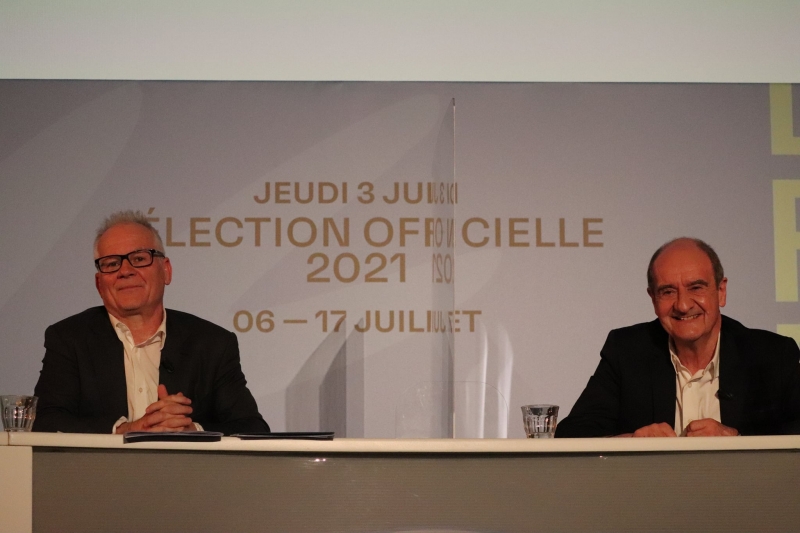
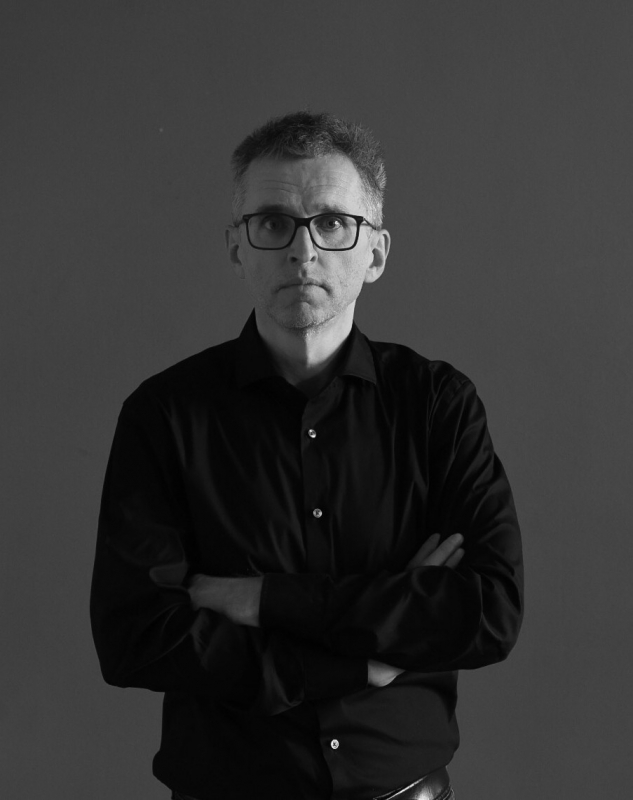
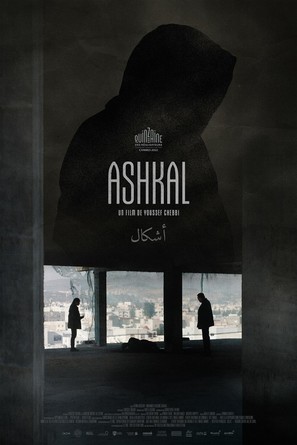
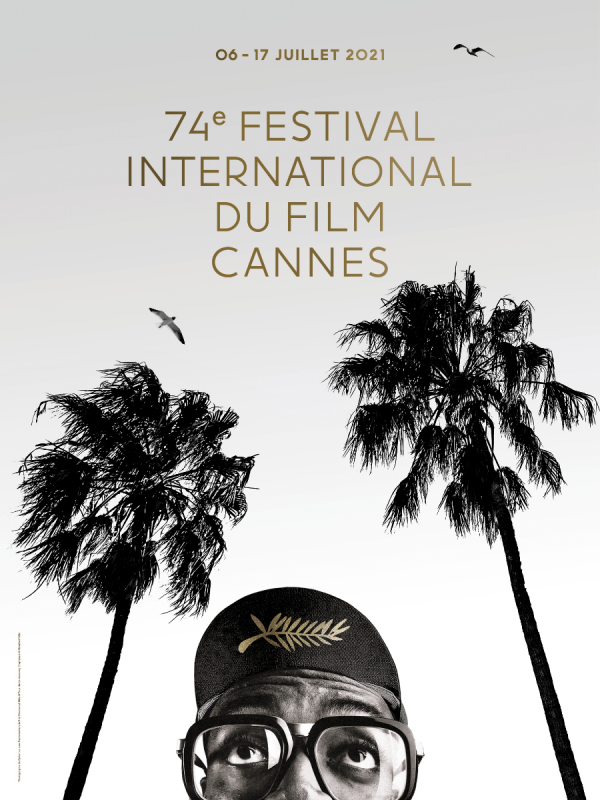

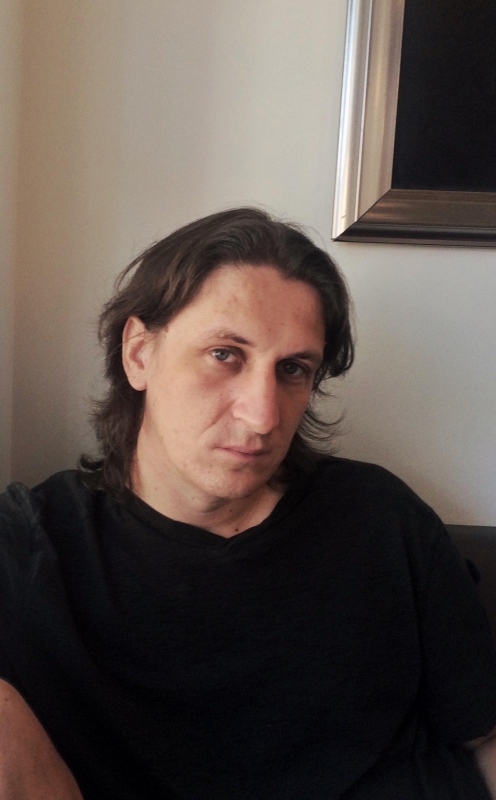
 Cannes
Cannes 


